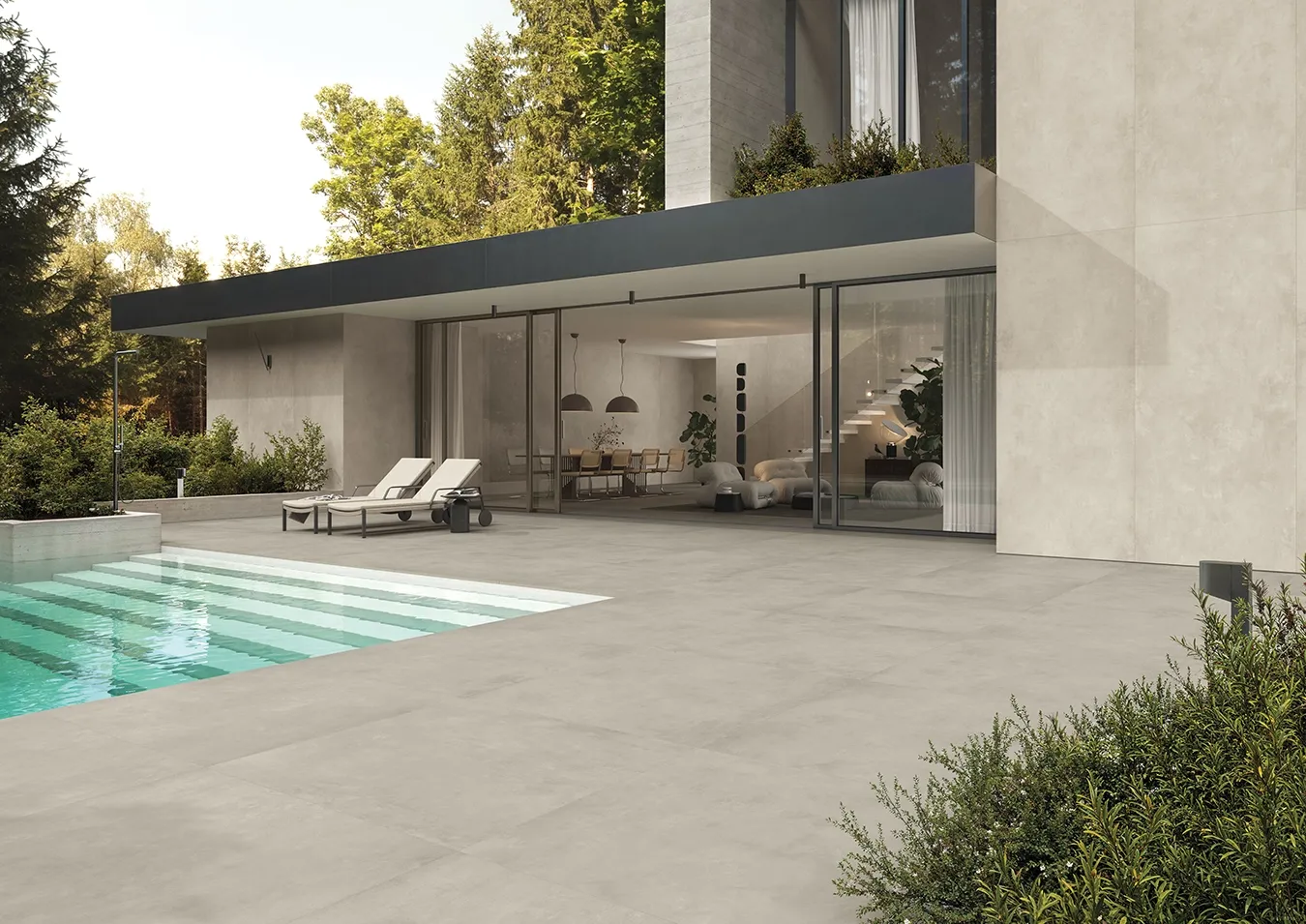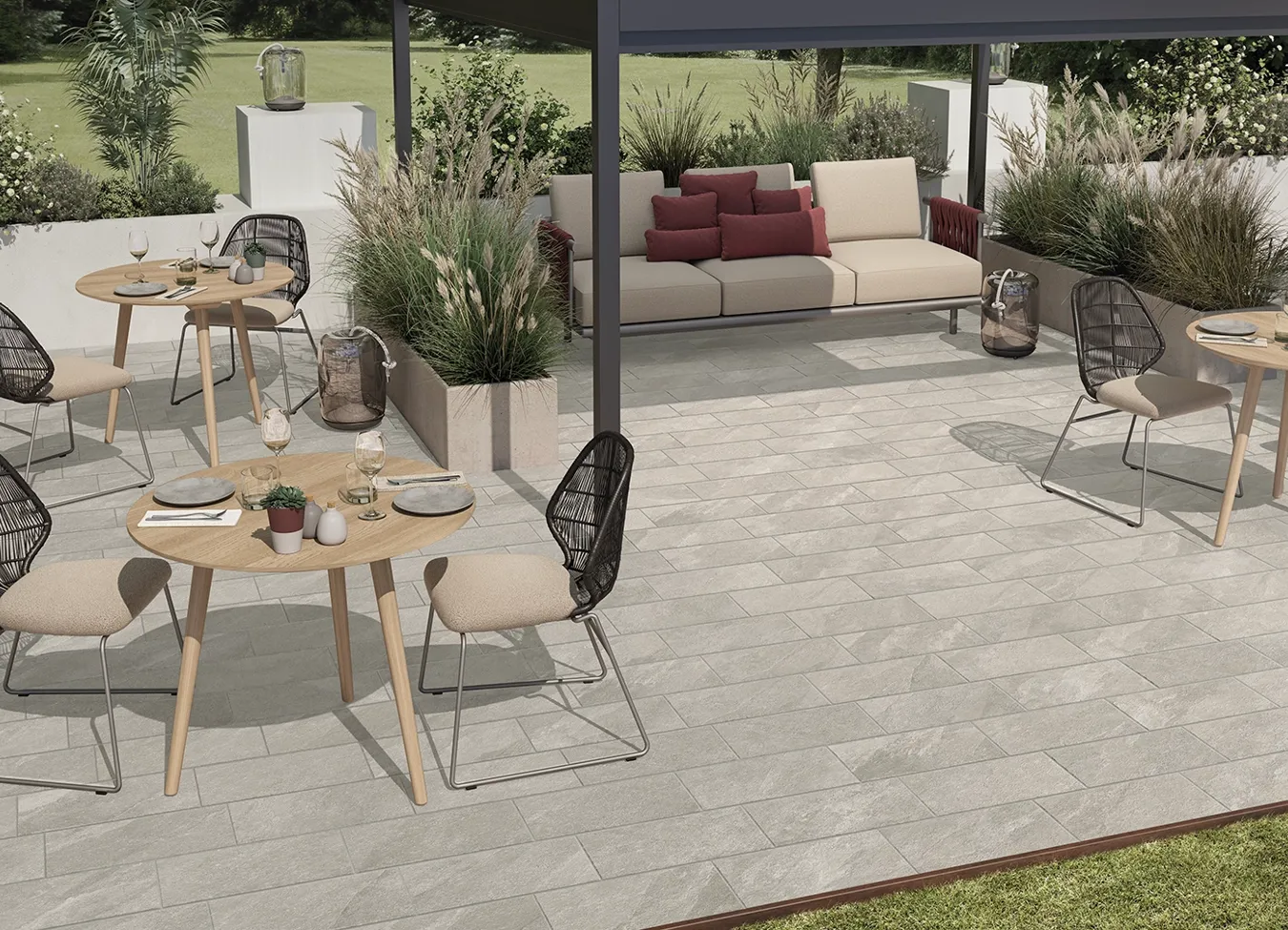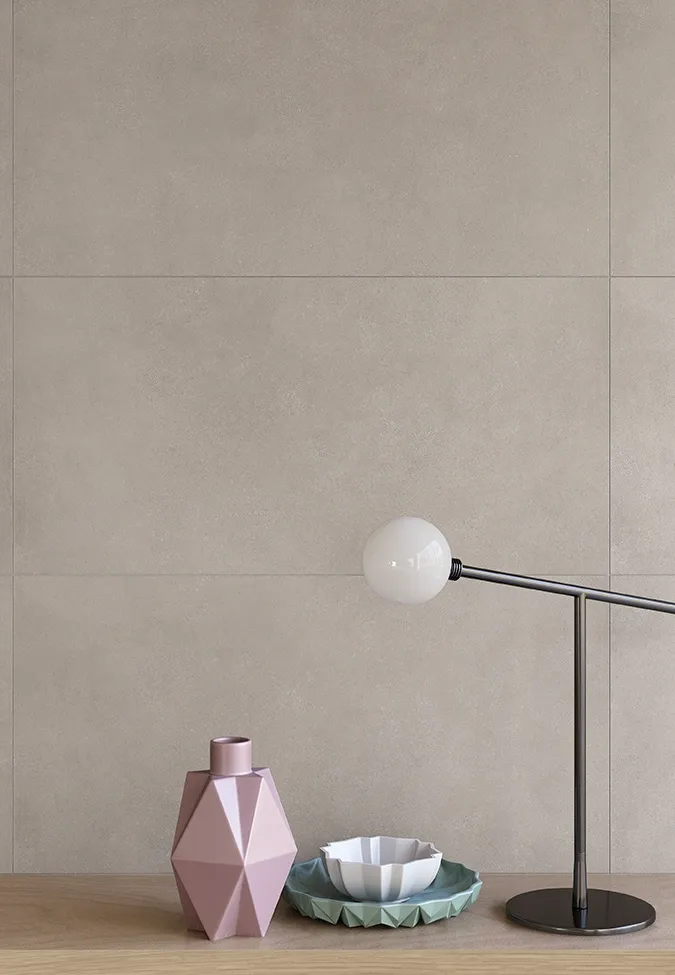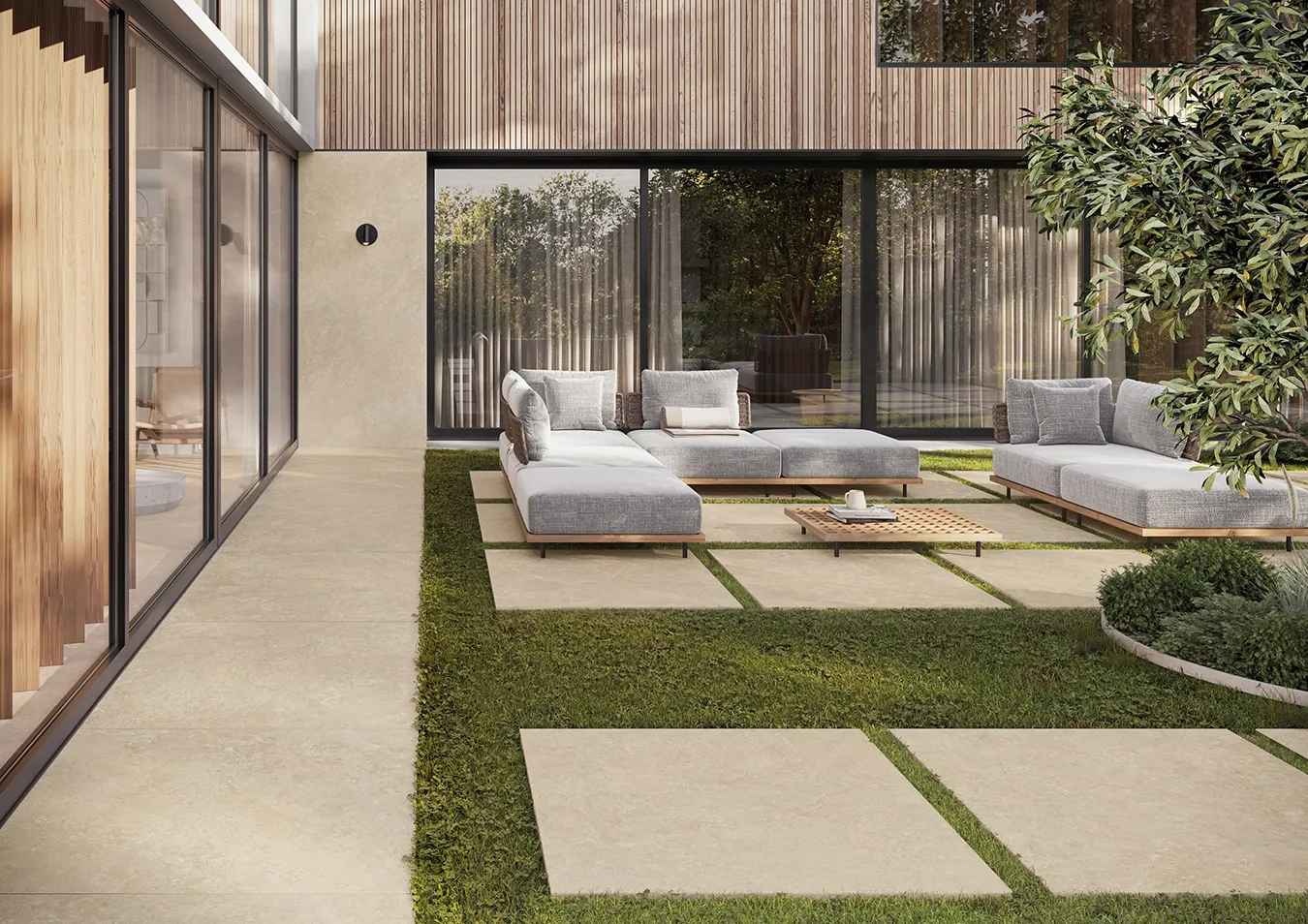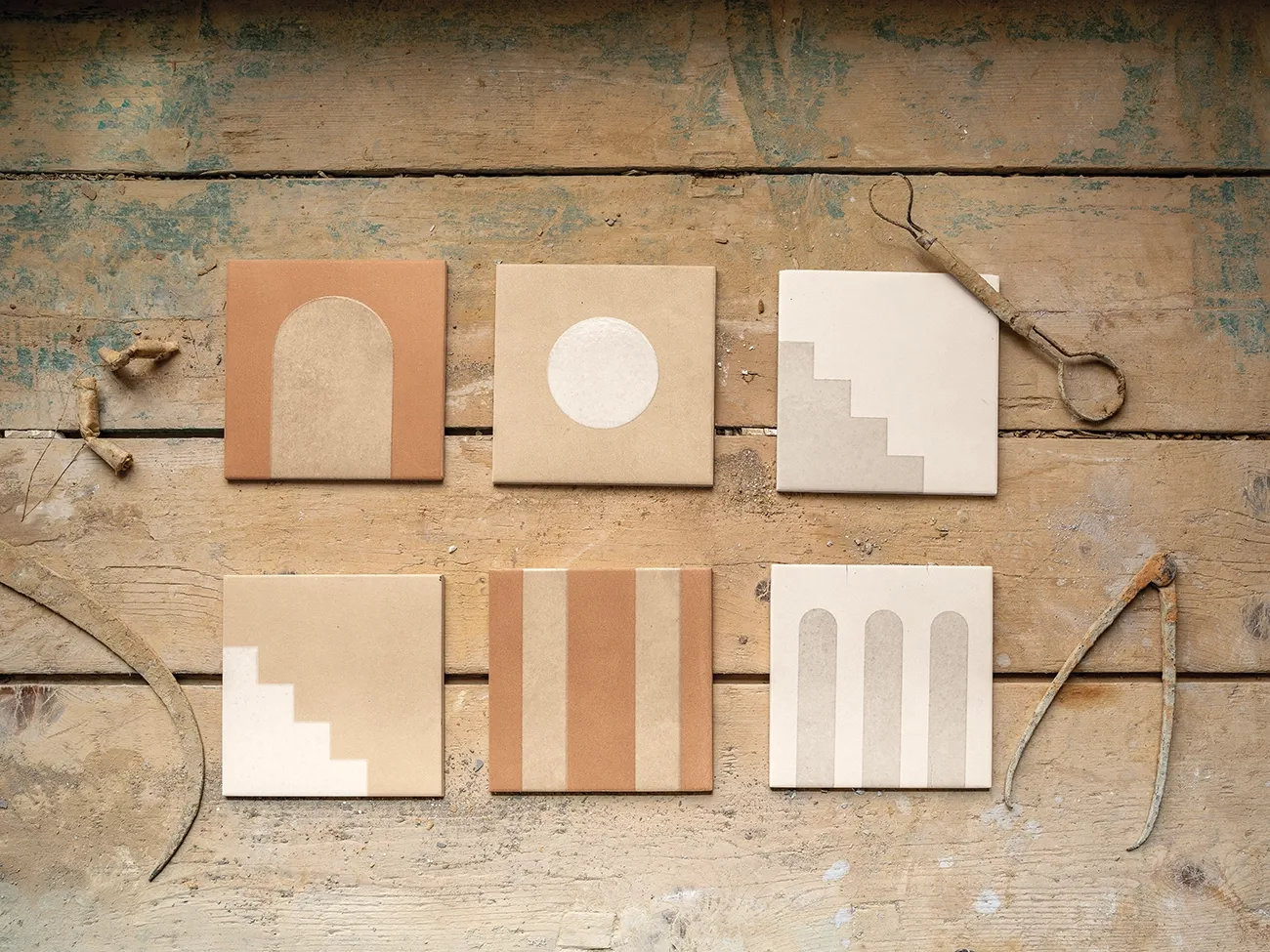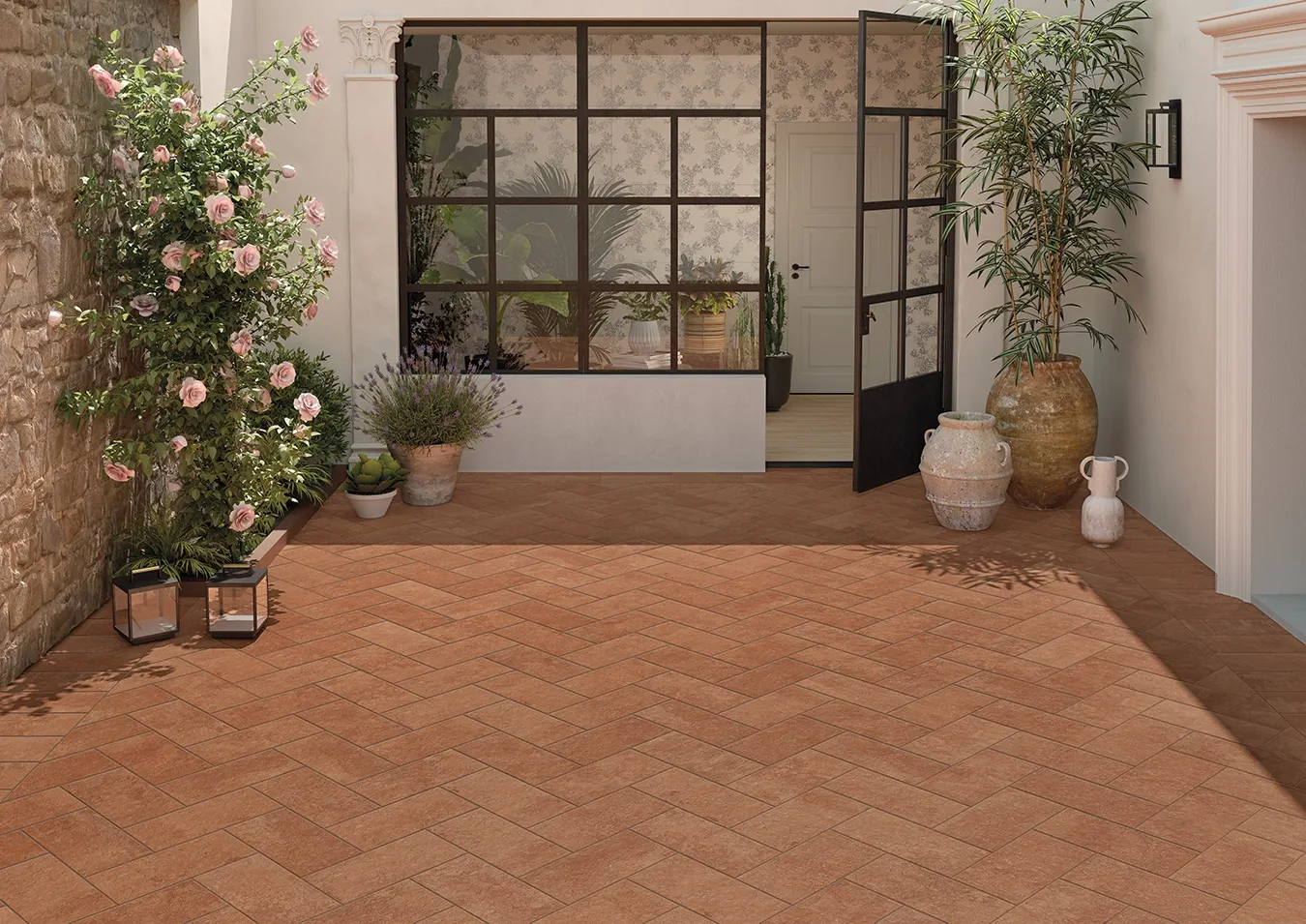Porcelain stoneware thickness: consistent performance across all options
Unlike traditional ceramic tiles, which can experience performance variations when thickness changes, porcelain stoneware maintains its exceptional technical properties consistently across all thickness options. This reliability stems from porcelain stoneware's superior composition and manufacturing process. Premium raw materials are fired at extremely high temperatures up to 1235°C (2255°F). This process creates a uniformly dense and non-porous material.
Whether you choose 6mm for wall applications or 20mm for heavy-duty outdoor use, porcelain stoneware retains its fundamental characteristics. These include low water absorption below 0.5%, stain resistance, color stability, and durability.All thicknesses maintain identical performance while being optimized for different installations.







